Unlike its name, the festival of the dead, this ceremony is not as scary as you might think. In fact, the festival of the dead is a celebration held to remember the dead. Every country has a different way of celebrating it.
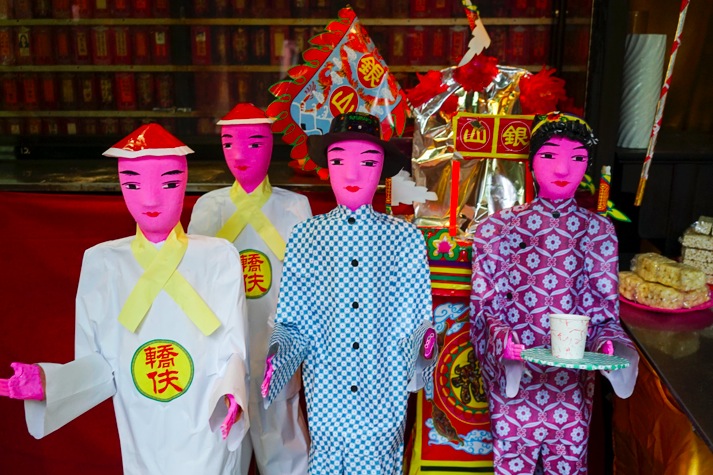
Zhong Yuan Jie
Buddhists and Taoists are people who greatly value ancestors and ancestors. Every year, they dedicate a whole month to honor deceased family members.
In that particular month they celebrate Zhong Yuan Jie or ‘festival of hungry ghosts’. The Chinese believe the gates to the afterlife open on the moon when Zhong Yuan Jie takes place. Not infrequently residents avoid outdoor activities at night for fear of being disturbed by ghosts who have passed through the gates of the afterlife.
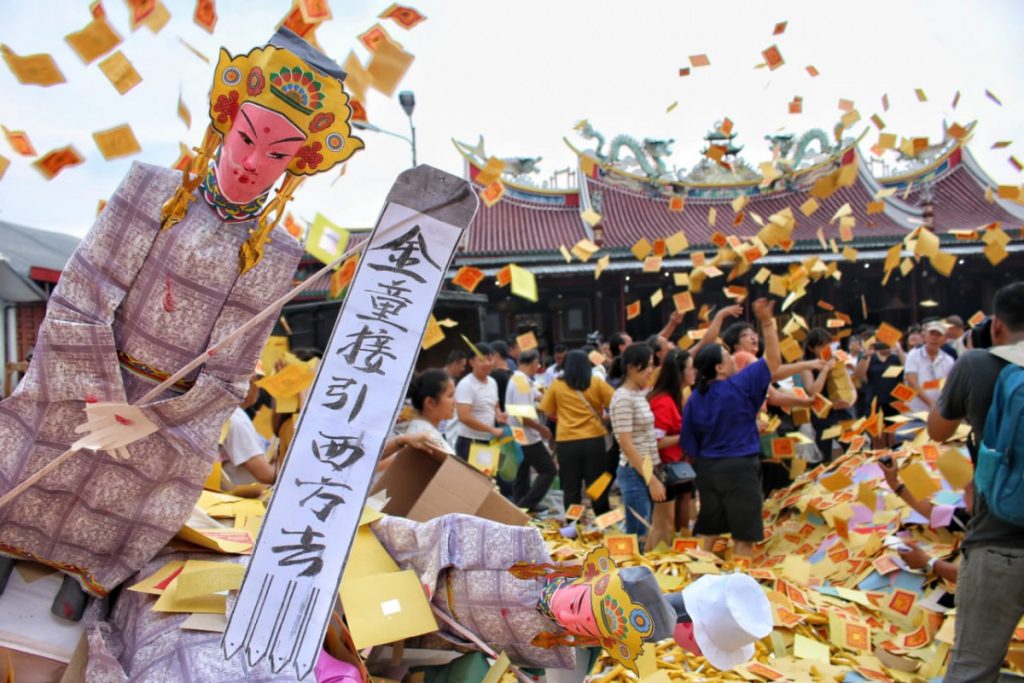
The Zhong Yuan Jie celebration begins with a parade and ends with floating water lanterns. Residents believe that the farther the lantern drifts before it catches fire, the more luck the deceased’s family will have in the coming year. They also burned fake banknotes, toy cars, and paper palaces as provisions for the deceased so that they could live comfortably in the wild.
Pchum Ben
Between mid-September or October Cambodians stop all worldly activities to celebrate Pchum Ben. It is one of the most important holidays in the Khmer religious calendar.
This holiday lasts for 15 days. At that time Cambodians thronged the pagoda while wearing white mourning clothes.
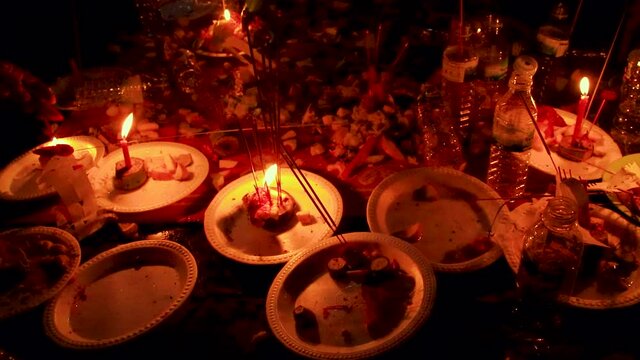
Pchum Ben are the days where the boundary between the afterlife and the human world is gone. At that time the spirits will return to their living relatives to atone for the sins of their past lives. Instead, Cambodians bring food offerings to the pagoda.
El Dia de los Muertos
El Dia de los Muertos has a similar concept to Halloween. The festival is also a product of the assimilation of ancient rituals and Christian teachings. El Dia de los Muertos is known throughout Latin America, but it is Mexicans who celebrate it most enthusiastically.
Dia de los Muertos lasted for 2 days. The essence of the celebration is to commemorate the life that the deceased once lived with food, parades, dances and debauchery. In that way it is believed that the spirits of the dead will return and join the party before returning to their world.
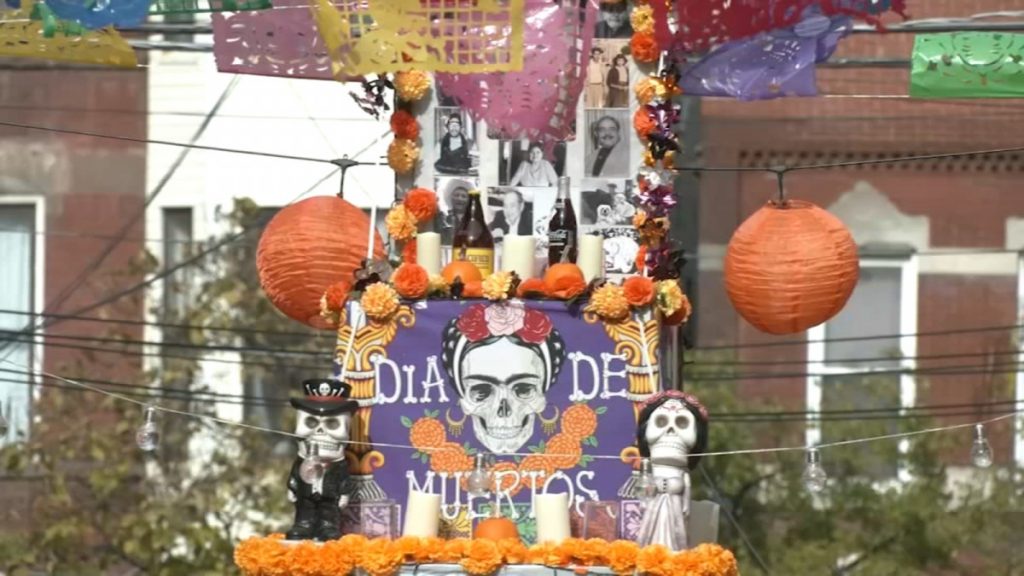
The tomb of the deceased was cleaned and fitted with a simple altar equipped with food offerings. One of the most distinctive is Pan de muerto or ‘bread of the dead’. This bone-shaped bread is specially baked by living family members.
Pitru Paksha
Pitru Paksha is a tradition where Hindus remember their ancestors. This celebration lasts for 15 days in the Hindu month of Ashwin. At that time, residents gave offerings in the form of food.
Pitru Paksha begins with the story of Karna, a warrior in Hindu mythology. When his soul reached heaven, Karna was hungry. But he found nothing but gold. Karna asked for food from Indra, the lord of the heavens.
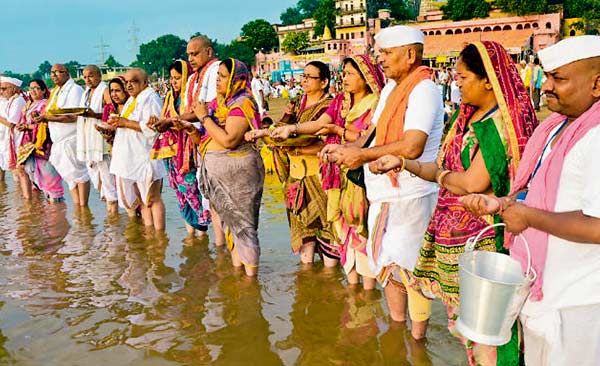
But Indra said Karna could only eat gold because he never offered food to his ancestors while he was still alive. Karna regretted his actions and was allowed to return to earth for fifteen days. He used that time to make amends by giving him food and water.
La Fiesta de Santa Marta de Ribarteme
La Fiesta de Santa Marta de Ribarteme is an annual event held in Las Nieves, a small town in northwestern Spain. This ritual of playing dead has become part of the local culture in Las Nieves.
For centuries, the Catholic church was unable to fully integrate their teachings in Las Nieves. Most of the population still believes in witches and evil spirits in their spiritual life. So, this unique festival is one of the church’s efforts to adapt to the local culture of the community.
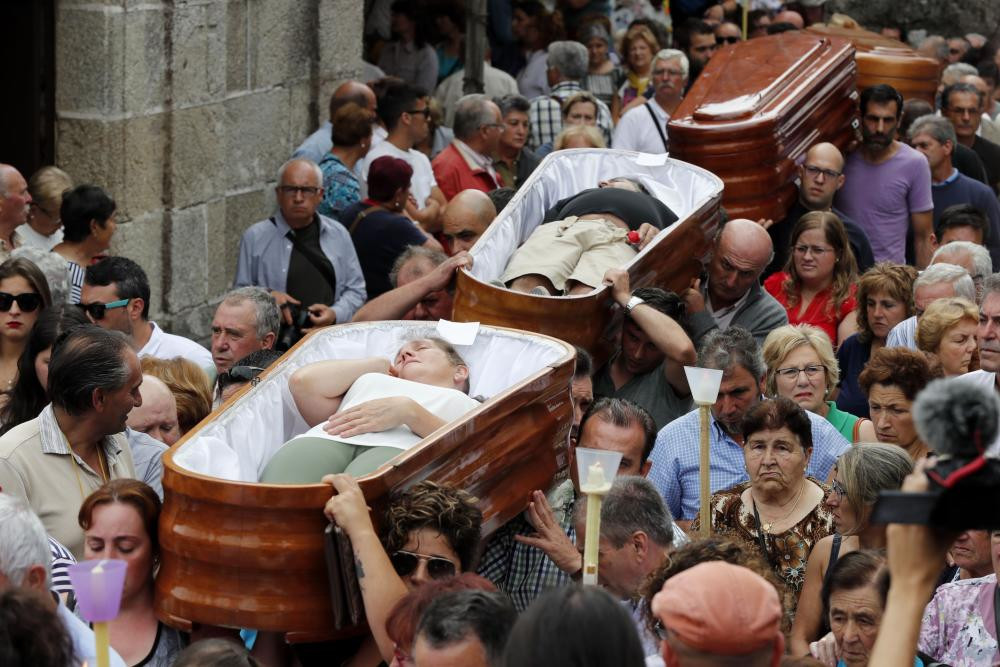
La Fiesta de Santa Marta de Ribarteme is held on July 29 every year, as reported by Odditycentral.com. Some people would be put to sleep in coffins and then paraded around the city. They even acted as if they had died.